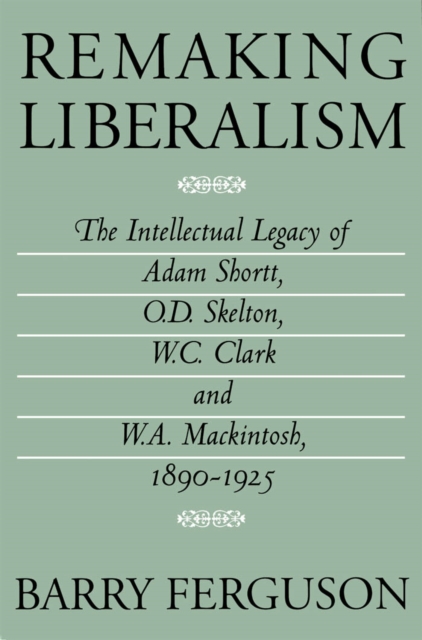
Remaking Liberalism : The Intellectual Legacy of Adam Shortt, O.D. Skelton, W.C. Clark, and W.A. Mackintosh, 1890-1925 PDF
by Barry Ferguson
Description
Adam Shortt began teaching political economy at Queen's University in the late 1880s.
His theories attracted students and faculty who were interested in applying the new tenets of economics and political science to questions of Canadian public policy.
The concerns of the group that formed around Shortt were broad and self-consciously cumulative, a perspective promoted particularly by Shortt's colleague and successor O.D.
Skelton. The group encouraged reassessment of the role of the social scientist in the university and society, and analysed contentious economic and political questions of the day.
Addressing economic policies such as industrialization, foreign investment, labour-business relations, and prairie settlement, they examined the political and governmental ramifications of economic problems, concentrating on the role of political parties, the broad role of government, the place of the public service, and ethnic, class, and regional political relations.
Ferguson demonstrates that Shortt, Skelton, Clark, and Mackintosh clearly argued on behalf of the new liberalism, emphasizing individual rights and positive government.
He suggests that their ideas reveal an intellectual position which differed from the imperialist and continentalist alternatives that dominated Canadian thinking at the time.
Information
-
Download - Immediately Available
- Format:PDF
- Pages:320 pages
- Publisher:McGill-Queen's University Press
- Publication Date:05/10/1993
- Category:
- ISBN:9780773564268
Other Formats
- Hardback from £86.95
Information
-
Download - Immediately Available
- Format:PDF
- Pages:320 pages
- Publisher:McGill-Queen's University Press
- Publication Date:05/10/1993
- Category:
- ISBN:9780773564268






